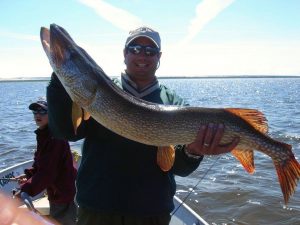Beyond the Hook: Unraveling the Global Significance of Fishing


Fishing, an age-old practice that has sustained communities and cultures for centuries, holds a profound importance in today’s world. Beyond being a leisure activity, fishing plays a critical role in global economies, food security, cultural heritage, and environmental conservation. In this article, we will delve into the multifaceted importance of fishing, exploring its impact on various aspects of the world.
Economic Impact:
One of the primary ways in which fishing asserts its importance is through its substantial contribution to the global economy. Commercial fishing operations, ranging from small-scale enterprises in coastal communities to large-scale industrial ventures, generate significant economic value. The fishing industry is a source of employment for millions of people worldwide, supporting livelihoods in areas where alternative economic opportunities may be limited. The trade of fish and seafood products also contributes to international commerce, playing a pivotal role in the global market.
Food Security:
Fishing is a cornerstone of global food security, providing a vital source of nutrition for billions of people. Fish, rich in protein, omega-3 fatty acids, and essential minerals, is a staple in the diets of many communities. Coastal regions and countries with access to abundant fisheries often rely on fish as a primary source of sustenance. Fishing activities ensure a continuous supply of fresh seafood, helping address the nutritional needs of populations around the world and mitigating food shortages in various regions.
Cultural Heritage:
Fishing is deeply ingrained in the cultural fabric of societies across the globe. Traditional fishing practices, passed down through generations, contribute to the unique identity of communities. The rituals, folklore, and artisanal skills associated with fishing form an integral part of cultural heritage. Fishermen, often regarded as stewards of their cultural legacy, play a crucial role in preserving and passing on these traditions, fostering a sense of continuity and pride within their communities.
Biodiversity Conservation:
While overfishing has raised concerns about the depletion of marine resources, responsible fishing practices can contribute to biodiversity conservation. Fishermen employing sustainable methods, like selective harvesting and eco-friendly gear, actively advocate for regulations and initiatives to ensure healthy fish populations and protect marine ecosystems, preserving biodiversity
Climate Resilience:
Fishing communities often serve as frontline responders to the impacts of climate change. Changes in sea temperatures, ocean acidification, and extreme weather events can significantly affect fish populations and the livelihoods of fishermen. As climate resilience becomes a global priority, the knowledge and adaptability of fishing communities become invaluable. Many fishermen are actively involved in climate resilience initiatives, working with scientists and policymakers to develop strategies that address the challenges posed by a changing climate.
Scientific Collaboration:
Fishermen serve as valuable partners in scientific research, providing essential insights into marine ecosystems. Moreover, their firsthand knowledge of fish behavior, migration patterns, and changing environmental conditions can significantly contribute to scientific understanding. Collaborative efforts between fishermen and researchers can enhance the accuracy of data collection, improve fisheries management strategies, and foster a more comprehensive understanding of the complex interactions within marine environments.
Tourism and Recreation:
Beyond its utilitarian aspects, fishing is a popular recreational activity that contributes to the global tourism industry. Furthermore, anglers explore varied fishing destinations, enticed not just by the excitement of the catch but also by the scenic beauty and distinct experiences in coastal areas. Fishing tourism boosts local economies, benefiting hotels, restaurants, and businesses catering to recreational anglers, underscoring the multifaceted importance of fishing. The importance of fishing to the world extends far beyond the mere act of catching fish. Fishing plays a vital role globally, contributing to the economy, food security, cultural heritage, biodiversity conservation, and scientific collaboration. Recognizing its holistic importance is crucial amid challenges such as sustainable resource management, climate change, and cultural heritage preservation.

